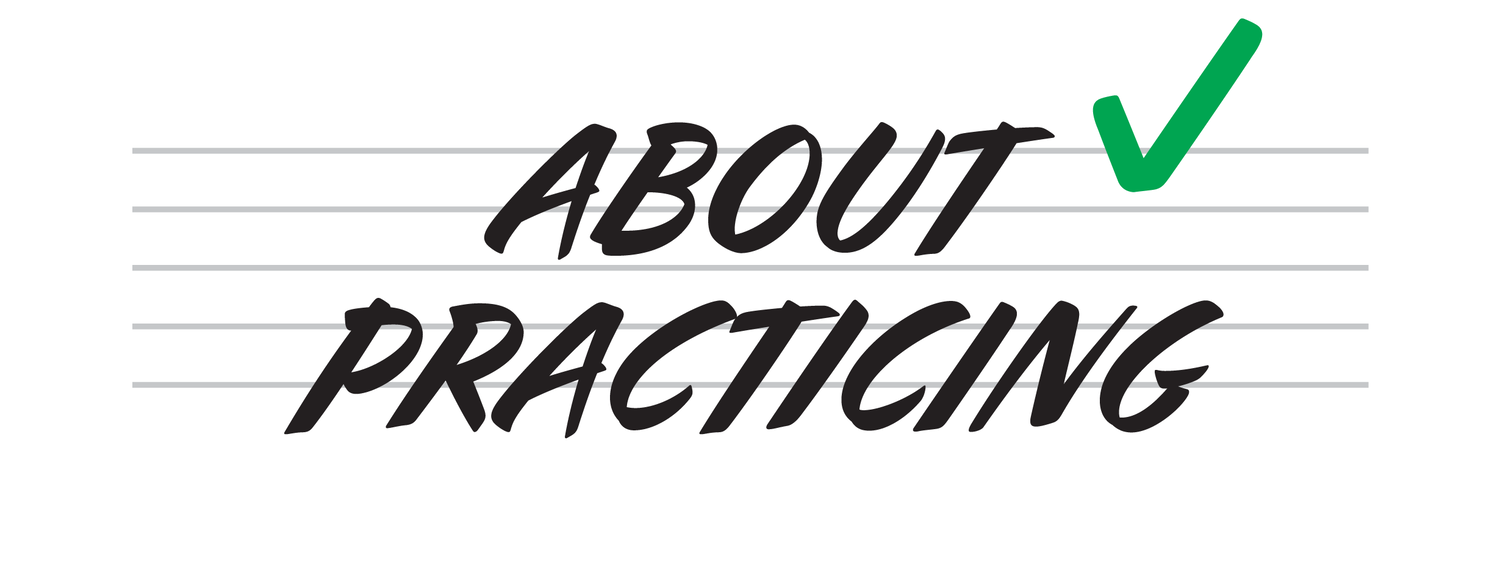Peak.
A while back I read Peak, by Anders Ericcson and Robert Pool. Ericcson was a psychologist who spent his career studying expert behavior; his book has a lot of good and interesting things to say about practicing, as you might imagine.
Ericcson and Pool come back repeatedly to the idea of getting out of your comfort zone. It's such a simple idea – if you want to get better at something, you have to try to do things you currently can not do. They go into the science behind it, explaining that brains, muscles, and nerves all respond to the stress of the stretch. But the idea hardly needs the explanation, because it makes such immediate sense. So the question is:
If it's so obvious, why am I not doing it?
When it comes to practicing I think there are really two comfort zones – one for practicing, and one for playing. If you have a practice routine that doesn't change very often, that's your practicing comfort zone. If you're generally content with the way you play and you only practice to keep from getting rusty, that's your playing comfort zone. And, being comfort zones, they both can be pretty comfortable.
You can be doing a lot of practicing and still be in your zone because it's easy to confuse getting things done with making progress. Let's say your practicing routine is 10 minutes of scales to warm up, 10 minutes on technical exercises, 20 minutes of concentrating on a song you're learning and 20 minutes of trying something new. That's organized, and varied, and reasonable, and you can easily imagine it leading to better playing. But has it led to better playing, or does it just seem like it should? You're clearly doing something, but are you getting anywhere? Are you running in place, or actually running?
The progress I'm talking about there is progress in your playing, and I'll get back to that, but there is also the idea of progress in your practicing. Are you becoming a better practicer? Is your concentration getting better? Are you using your time more efficiently? Are you more conscientious about avoiding distractions? Are you gaining facility with new material more easily? Taking better notes? Being more consistent with your scheduling? These things may be harder to notice and harder to measure, but there's clearly such a thing as getting better at practicing. Think about how you did it when you first started. You're surely better at it now than you were then, so what has changed? And has it stopped changing? And if so, why?
Progress in your playing has to do with more than just practicing. It also has to do with goals. You may be comfortable enough with how you play, so your goal is just to maintain that level. You may be comfortable with your technique, but want to expand your repertoire. Or, the reverse may be true – you're comfortable with your repertoire, but want to improve your technique. Or you may want to both expand your repertoire and improve your technique. In each case you have (or should have) a goal, and, if you try, you can tell whether you're making progress towards that goal.
Having goals is a useful way to get out of your comfort zone, but there are a few more things to keep in mind. One is that goals need to be measurable; you have to be able to tell if you've reached them, or how close you are if you haven't. “I want to learn more songs” is not a goal. “I want to learn these five new songs by my birthday” is a goal. “Five new songs by my birthday” is specific about how much you're going to to and when you're going to have done it. Six new songs, and you've exceeded your goal; four new songs, you haven't met it. Five new songs by the day before your birthday, you've exceeded your goal; five new songs by the day after, you haven't. So you need measurable goals – and then, you need to actually measure them.
Goals should also be enough of a stretch to be challenging but also achievable. You can become comfortable with slow progress as easily as you can with no progress.
And then there's the problem of the last 10%. The last 10% of anything is the hardest part – going from 90% done to 100% done. You can end up working on that last 10% for a long time, with little progress – and that becomes your comfort zone. After all, those last rough spots are hard, or you'd be able to play them by now; in a way, it makes sense that you can't play them. And you're working on them, right? So you're comfortable with where you are and, if you're not careful, you'll never leave.
Besides having measurable goals and measuring your performance against them, how else can you deal with comfort zones? Ericcson and Pool stress the importance of having a good teacher who gives you personalized instruction in what to practice and how to practice, given the current state of your playing. All I can say about that excellent advice is that such teachers are easier to describe than to find.
One more thing to suggest: If you think you may be stuck in your comfort zone (and, if you have to wonder, then you are), change something. Change your goals, change your routine, change your schedule. Make it a thoughtful change, not a random one, of course. But change. Then measure. Make yourself a little uncomfortable, and see what happens.
Peak: Secrets from the New Science of Expertise, by Anders Ericcson and Robert Pool, Eamon Dolan/Houghton Mifflin Harcourt
